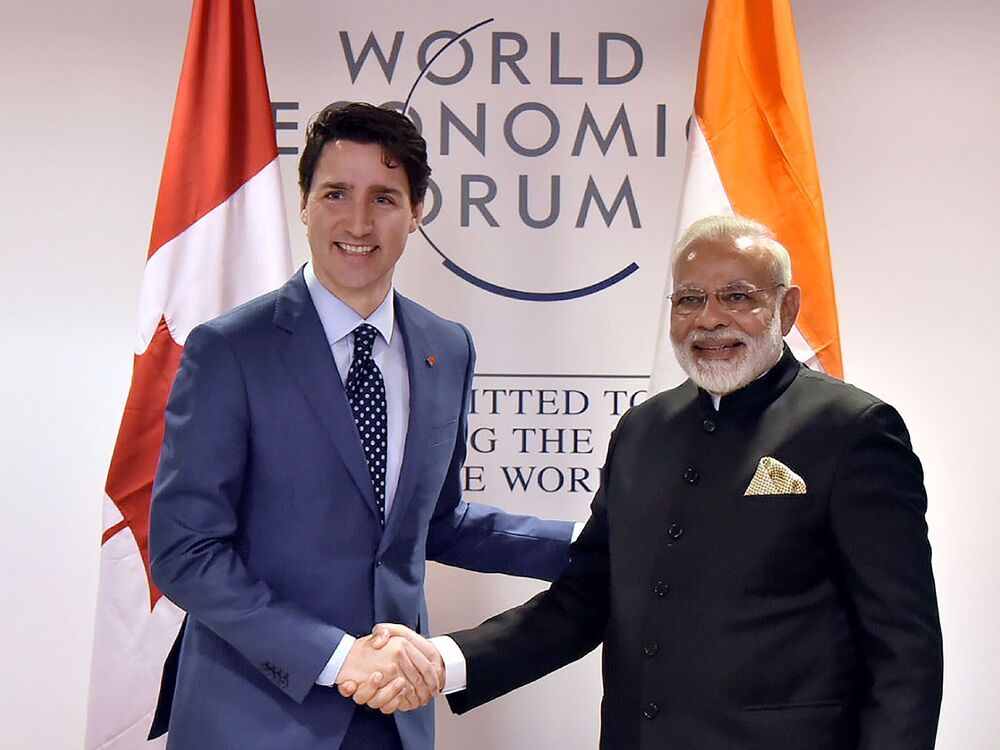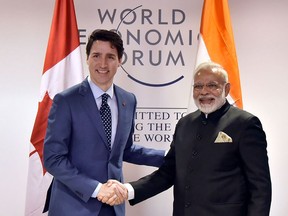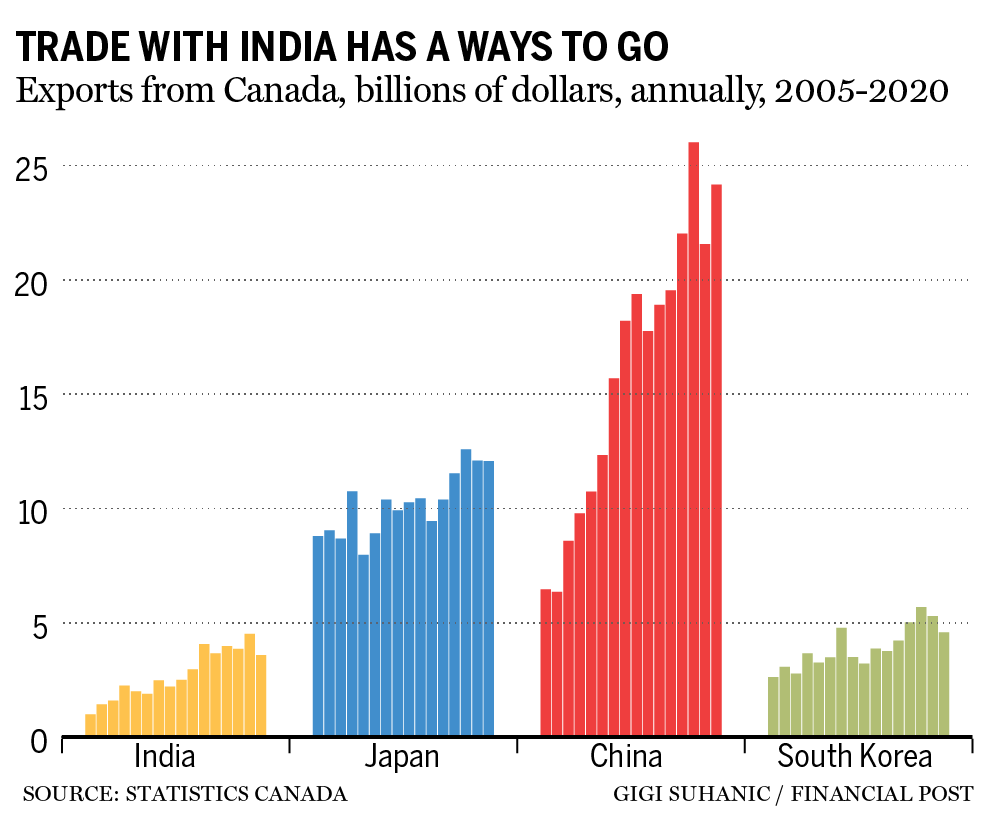Shifting geopolitics mean Canada and India might actually do a trade deal this time, analysts say

Russia’s invasion of Ukraine strengthens argument that like-minded countries should co-operate economically

Article content
The governments of Canada and India have a poor track record when it comes to securing trade agreements with each other, but geopolitics could mean the “relaunch” of negotiations over a comprehensive trade deal should be taken seriously, analysts said.
Advertisement 2
Story continues below
Article content
“We now have this Russia-Ukraine equation which underlines the point that like-minded countries can and should co-operate economically,” said Rohinton Medhora, president of Centre for International Governance Innovation, a think-tank.
India has so far avoided picking sides in the Russia-Ukraine war. India is Russia’s second-biggest purchaser of defence equipment, and New Delhi feels it needs a full arsenal to deter incursions from China and Pakistan.
Canadian Trade Minister Mary Ng embarked on a two-day trip to India’s capital, New Delhi, and left with an agreement on March 11 to first negotiate an “early progress trade agreement” that would focus on easy wins before negotiating a “comprehensive” deal that could involve more difficult issues.
Advertisement 3
Story continues below
Article content
“The situation that is in front of us really shows the importance of partnering with allies on building resilient supply chains,” Ng said in a telephone interview over the weekend. “What is really important is the resilience of the post-pandemic supply chain and trade is a proxy for democratic values because trade, and certainly how Canada trades, is a commitment to the rules-based international order.”
It will be an arduous task for Canada and India’s trade negotiators, who’ve already been through nearly a dozen rounds of talks since 2010, when former prime minister Stephen Harper first launched talks with the largest democracy. The world since then has changed, as the pandemic accelerated agendas to diversify supply chains. Democratic powers such as Canada and the U.S. are vocal about China’s influence over the global supply of everything from the rare minerals needed to build electric-vehicle batteries to the consumer goods sold at Walmart Inc.’s stores.
Advertisement 4
Story continues below
Article content
“Even before the Ukraine crisis happened, (Canada was) worried about resilient supply chains and we wanted supply chains to reshape slightly away from their China-centric nature towards other countries that had underperformed in them and India is just one example of that,” Medhora said, adding that the two factors could now prompt more simpatico negotiations between India and Canada.
However, it’s crucial that both parties show goodwill and that they are ready to “play ball” because talks have always died down, said Mark Agnew, senior vice-president of policy and government relations at the Canadian Chamber of Commerce.
-

Canada and India agree to relaunch trade talks, as democratic nations seek to strengthen ties to counter China, Russia
-

Trade minister Mary Ng to visit India, signaling shift in relations since Trudeau’s ill-fated 2018 trip
-

India explores setting up rupee trade accounts with Russia to soften sanctions blow: sources
-

Coal’s last boom? World’s dirtiest fuel isn’t being put out of business anytime soon
Advertisement 5
Story continues below
Article content
“I think an announcement is good but let’s temper expectations,” Agnew said. He did underline that Ng and her counterpart said the early agreement will address sanitary measures, which have been a headache for pulse exporters whom India requires to fumigate crops such as chickpeas, peas and lentils.
Getting an early agreement could demonstrate each side’s sincerity; however, taking that path runs the risk of weakening an already-battered World Trade Organization whose principles encourage countries to come up with fully fleshed out trade agreements, said Carlo Dade, director of trade and investment at Canada West Foundation, a think-tank.
Transitional deals that are a step towards full, comprehensive agreement are permissible, but that leaves room for the latter deal to remain hanging.
“The theory is that you can build confidence and momentum by starting with the things that are easiest to agree,” Dade said. “We’ll have to wait and see.”
• Email: [email protected] | Twitter: biancabharti
Advertisement
Story continues below










